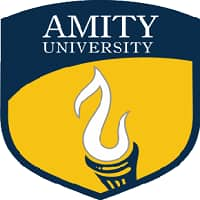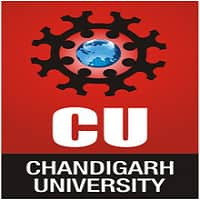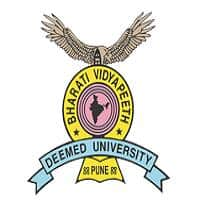Parul University B.Tech Admissions 2025
Registrations Deadline- 12th June | India's youngest NAAC A++ accredited University | NIRF rank band 151-200 | 2200 Recruiters | 45.98 Lakhs Highest Package
Preparing for the GITAM Admission Test (GAT) 2025 requires a strategic approach to navigate the competitive landscape effectively. As the entrance exam for admission into various undergraduate and postgraduate programs at GITAM University, it demands thorough preparation across subjects like Mathematics, Physics, Chemistry, and English. Candidates should start the GITAM GAT exam preparation as early as possible to get good marks. Incorporating mock tests and staying updated with exam trends will also contribute to a well-rounded preparation strategy. This guide aims to provide you with essential tips to maximize your readiness and achieve your desired results in the GITAM GAT 2025. GITAM University conducts the GAT exam for admission to Btech courses offered by the institute. Read the full article below to learn more about the exam pattern and syllabus of GITAM GAT.

Candidates preparing for the GITAM GAT 2025 will need to update themselves with class 11th and 12th standard books. Below is a list of points candidates should follow while preparing.
Prepare two months in advance - Candidates should complete their GITAM GAT preparation 2 months before the exam. This will provide ample time for revision.
Create a timetable - Candidates appearing for GITAM GAT 2025 should set a timetable to manage their daily schedule. Because the utilisation of maximum time in a proper manner can only be attained by following a set timetable.
Strategies for the study material - Create a study strategy according to the GITAM GAT exam pattern and syllabus to plan which topic and chapter to start with first.
Practice makes perfect - Practice at least 10 GITAM GAT sample papers and mock tests. This will help them to measure their preparedness.
Revision is Must - After preparing for the exam, candidates should regularly revise the important concepts and formulas. The revision will help in retaining the details for a longer duration.
Seek Expert’s Guidance- In case of any confusion or doubt, consult with experts to get an instant solution. It is always a better option to ask experts instead of wasting time to get solutions on our own.
Stay healthy and sleep well - It is easy to get distracted from keeping healthy while preparing for the GITAM GAT exam. Candidates need to be mindful to eat healthily, avoid excessive screen time and get at least 8 hours of sleep.
GITAM GAT exam syllabus comprises topics from Physics, Chemistry, and Mathematics. Below is the syllabus table for B.Tech covering PCM subjects.
Current Electricity | Units & Dimensions | Fluid Mechanics |
Surface Tension | CR Circuits | Elements of Vectors |
Kinematics | Electromagnetism | Thermal Properties of Matter |
Thermodynamics | Magnetism | Work, Power, and Energy |
Kinetic Theory of Gases | Center of Mass | Electromagnetic Induction |
Simple Harmonic Motion | Dual Nature of Matter and Radiation | Collisions |
Rotatory Motion | Atoms & Nuclei | Wave Motion |
Gravitation | Optics | Electrostatics and Capacitors Elasticity |
Sets, Relations, and Functions | Probabilities, Random Variables & Distributions | Applications of Derivatives |
Quadratic Equations | Limits, Continuity, and Differentiability | Indefinite Integration |
Theory of Equations | Complex Numbers | Application of Integrals |
Binomial Theorem and its Simple Applications | Properties of Triangles | Coordinate Geometry |
Sequences and Series | Trigonometry | Circles |
Permutation and Combination | Three Dimensional Geometry | Parabola, Ellipse, Hyperbola, Polar Coordinates |
Mathematical Induction | Vector Algebra | Differential Equations |
Mathematical Reasoning | Matrices and Determinants | Statistics |
Chemistry in Everyday Life | Solutions | Biomolecules |
Practical Organic Chemistry | Ionic Equilibrium | Organic Compounds Containing Nitrogen |
Alcohols, Phenols, and Ethers | Chemical Equilibrium Solid State | Organic Chemistry Principles of Qualitative Analysis |
Aromatic Hydrocarbons | Surface Chemistry | General Principles of Metallurgy |
Haloalkanes | Chemical Kinetics | Coordination Compounds |
Thermodynamics | Electro-Chemistry | Lanthanide |
State of Matter: Gases and Liquid | Group 13 Elements | Transition Elements |
Alkali and Alkaline Earth Metals | Group 14 Elements | Group 17 Elements |
Hydrogen and its Compounds | Hydrocarbons | Group 16 Elements |
Classification of Elements and Periodicity of Properties | Aldehydes, Ketones and Carboxylic Acids | Group 15 Elements |
Chemical Bonding | Polymers | Group 18 Elements |
Nuclear Chemistry | Environmental Chemistry | Atomic Structure |
There will be three sections in GITAM GAT 2025: Physics, Chemistry, and Mathematics. Questions are multiple-choice questions containing four options. Candidates will receive two marks for the correct answer with no negative marking for the incorrect answer. The duration of the GITAM GAT exam will be 2 hours.
GITAM GAT 2025 | Details |
Mode Exam | Online |
No. of Question Papers | 2 |
Type of Question | Multiple Choice Questions |
Total Number of Questions Per Paper | 100 |
Marking Scheme | 2 |
Negative Marking | NIL |
Total Marks for both Question Papers | 100 x 2 = 200 |
Duration of Exam | 120 minutes |
Exam Language | English |
Sections | Subjects | Questions | Total Marks |
A | Mathematics | 30 | 60 |
B | Physics | 20 | 40 |
C | Chemistry | 20 | 40 |
C | English | 10 | 20 |
D | Quantitative Aptitude & Analytical Reasoning | 20 | 40 |
Total | 100 | 200 |
Concept of Physics - HC Verma
Organic Chemistry - TW Graham Solomons and Craig Fryhle
Objective Maths- RD Sharma
NCERT Book
Fluid Mechanics and Fluid Machines - Modi and Seth, R.K. Bansal, A.K. Jain, K.Subramanyam, Jagdish Lal
Engineering Mechanics - Sadhu Singh
NCERT Chemistry - Class 11 & 12
Complete Mathematics - MC Graw Hills
Registrations Deadline- 12th June | India's youngest NAAC A++ accredited University | NIRF rank band 151-200 | 2200 Recruiters | 45.98 Lakhs Highest Package
Ranked #42 among Engineering colleges in India by NIRF | Highest Package 1.3 CR , 100% Placements
The GITAM GAT exam is 2 hours long.
The exam consists of various topics from subjects: physics, mathematics, and chemistry.
Candidates will get for every correct answer two marks and no negative marks for the wrong answer.
Candidates preparing for the GITAM GAT exam 2025 may refer to books from-
Concept of Physics - HC Verma, Organic Chemistry - TW Graham Solomons and Craig Fryhle, Objective Maths - RD Sharma, NCERT Book, Fluid Mechanics and Fluid Machines by Modi and Seth, R.K. Bansal, A.K. Jain, K.Subramanyam, Jagdish Lal, Engineering Mechanics - Sadhu Singh, NCERT Chemistry- Class 11 & 12, Complete Mathematics - MC Graw Hills.
You can download GITAM GAT MBA sample papers and previous year question papers from the following official sources:
Careers360 : Provides sample papers and mock tests for GITAM GAT to help you practice effectively. Careers360 Engineering
Hello Pallavi,
For Gitam GAT PGP exam preparation, you can follow these suggestions:
Previous year question papers may not be widely available specifically for PGP, but UG Gitam GAT papers often have a similar pattern and can be useful.
Practice sample papers and mock tests to understand the exam format and improve speed.
Focus on important topics and regularly solve past papers to build accuracy.
Take full-length timed mock tests to simulate the exam environment.
Review mistakes carefully after practice to improve.
You can find sample papers and preparation materials by searching through official Gitam resources or general educational platforms.
I hope this answer helps you. If you have more queries, feel free to share your questions with us, and we will be happy to assist you.
Thank you, and I wish you all the best in your bright future.
Hello aspirant,
An essential part of preparing for GAT 2025 is practicing GAT mocks and past year's question papers. It will help you understand the kinds of questions that will be asked on the GAT, their level of difficulty, and the marking system. This will assist you in developing the practice of answering every question in the allotted time.
For more information, you can visit our site through following link:
https://engineering.careers360.com/articles/gitam-gat-sample-papers-mock-test
Thank you
Hi aspirant,
To prepare for the GITAM GAT, focus on the exam structure and syllabus, as well as practice sample papers.
Refer to link given above for the sample papers.
All the best!
HELLO,
No, with 68 marks in the GITAM GAT exam, it is unlikely to get a concession for admission.
GITAM GAT is a competitive entrance exam, and the cutoff varies each year based on the number of applicants and available seats.
For core branches like CSE or ECE, 68 marks may not meet the required cutoff.
However, you might still get admission to other branches, but concession or discounts typically require higher marks or special circumstances.
A flight attendant ensures passenger safety and comfort during flights. Key duties include conducting safety checks, assisting passengers, serving food and drinks, and managing emergencies. They must be well-trained in safety procedures and customer service. A high school diploma is typically required, followed by rigorous training to qualify for the role.
A Flight Engineer monitors and operates an aircraft’s complex systems like engines, fuel, and hydraulics during flight, ensuring optimal performance and safety. They assist pilots with technical issues, conduct inspections, and maintain records. This role requires strong technical knowledge, problem-solving, and communication skills. Training usually involves a degree in aviation or aerospace engineering and specialised certification.
An Aircrew Officer operates and navigates aircraft, ensuring safe flights and compliance with aviation regulations. Key duties include managing flight systems, conducting pre- and post-flight checks, and adhering to safety standards. The role typically requires working five days a week, with around 120 flight hours monthly. Employment may be contractual or permanent, depending on the airline.
An aerospace engineer designs, develops, tests, and maintains aircraft, spacecraft, and related systems. They apply physics and engineering principles to improve aerospace technologies, often working in aviation, defence, or space sectors. Key tasks include designing components, conducting tests, and performing research. A bachelor’s degree is essential, with higher roles requiring advanced study. The role demands analytical skills, technical knowledge, precision, and effective communication.
An air hostess, or flight attendant, ensures passenger safety and comfort during flights. Responsibilities include safety demonstrations, serving meals, managing the cabin, handling emergencies, and post-flight reporting. The role demands strong communication skills, a calm demeanour, and a service-oriented attitude. It offers opportunities to travel and work in the dynamic aviation and hospitality industry.
An aeronautical engineer designs, develops, tests, and maintains aircraft and related systems. They work on components like engines and wings, ensuring performance, safety, and efficiency. The role involves simulations, flight testing, research, and technological innovation to improve fuel efficiency and reduce noise. Aeronautical engineers collaborate with teams in aerospace companies, government agencies, or research institutions, requiring strong skills in physics, mathematics, and engineering principles.
A Safety Manager ensures workplace safety by developing policies, conducting training, assessing risks, and ensuring regulatory compliance. They investigate incidents, manage workers’ compensation, and handle emergency responses. Working across industries like construction and healthcare, they combine leadership, communication, and problem-solving skills to protect employees and maintain safe environments.
An airline pilot operates aircraft to transport passengers and cargo safely. Responsibilities include pre-flight planning, in-flight operations, team collaboration, and post-flight duties. Pilots work in varying schedules and environments, often with overnight layovers. The demand for airline pilots is expected to grow, driven by retirements and industry expansion. The role requires specialized training and adaptability.
Welding Engineer Job Description: A Welding Engineer work involves managing welding projects and supervising welding teams. He or she is responsible for reviewing welding procedures, processes and documentation. A career as Welding Engineer involves conducting failure analyses and causes on welding issues.
A career as Transportation Planner requires technical application of science and technology in engineering, particularly the concepts, equipment and technologies involved in the production of products and services. In fields like land use, infrastructure review, ecological standards and street design, he or she considers issues of health, environment and performance. A Transportation Planner assigns resources for implementing and designing programmes. He or she is responsible for assessing needs, preparing plans and forecasts and compliance with regulations.
An architect plans and designs buildings, ensuring they are safe, functional, and aesthetically pleasing. They collaborate with clients, engineers, and contractors throughout the construction process. Key skills include creativity, design software proficiency, and knowledge of building codes. In India, a 5-year B.Arch degree and registration with the Council of Architecture are required to practise professionally.
Having a landscape architecture career, you are involved in site analysis, site inventory, land planning, planting design, grading, stormwater management, suitable design, and construction specification. Frederick Law Olmsted, the designer of Central Park in New York introduced the title “landscape architect”. The Australian Institute of Landscape Architects (AILA) proclaims that "Landscape Architects research, plan, design and advise on the stewardship, conservation and sustainability of development of the environment and spaces, both within and beyond the built environment". Therefore, individuals who opt for a career as a landscape architect are those who are educated and experienced in landscape architecture. Students need to pursue various landscape architecture degrees, such as M.Des, M.Plan to become landscape architects. If you have more questions regarding a career as a landscape architect or how to become a landscape architect then you can read the article to get your doubts cleared.
Urban Planning careers revolve around the idea of developing a plan to use the land optimally, without affecting the environment. Urban planning jobs are offered to those candidates who are skilled in making the right use of land to distribute the growing population, to create various communities.
Urban planning careers come with the opportunity to make changes to the existing cities and towns. They identify various community needs and make short and long-term plans accordingly.
A plumber installs, maintains, and repairs water, gas, and waste systems in homes and buildings. Their duties include fixing leaks, installing fixtures, testing systems, ensuring safety compliance, and working with other professionals on projects. They also document repairs and may supervise apprentices. Plumbers play a key role in ensuring public health and the smooth functioning of essential utilities.
Individuals who opt for a career as construction managers have a senior-level management role offered in construction firms. Responsibilities in the construction management career path are assigning tasks to workers, inspecting their work, and coordinating with other professionals including architects, subcontractors, and building services engineers.
Individuals who opt for a career as an environmental engineer are construction professionals who utilise the skills and knowledge of biology, soil science, chemistry and the concept of engineering to design and develop projects that serve as solutions to various environmental problems.
Individuals who opt for a career as geothermal engineers are the professionals involved in the processing of geothermal energy. The responsibilities of geothermal engineers may vary depending on the workplace location. Those who work in fields design facilities to process and distribute geothermal energy. They oversee the functioning of machinery used in the field.
Energy efficiency engineering is a broad field of engineering which deals with energy efficiency, energy services, facility management, plant engineering, and sustainable energy resources. Energy efficiency engineering is one of the most recent engineering disciplines to emerge. The field combines the knowledge and understanding of physics, chemistry, and mathematics, with economic and environmental engineering practices. The main job of individuals who opt for a career as an energy performance engineer is to find the most efficient and sustainable path to operate buildings and manufacturing processes.
Individuals who opt for a career as energy performance engineers apply their understanding and knowledge to increase efficiency and further develop renewable sources of energy. The energy efficiency engineers also examine the use of energy in those procedures and suggest the ways in which systems can be improved.
A geologist attempts to comprehend the historical backdrop of the planet we live on, all the more likely to anticipate the future and clarify current events. He or she analyses the components, deployments, results, physical characteristics, and past of the planet. A geologist examines the landforms and landscapes of the earth in relation to the geology, climatic, and human processes that have shaped them.
A geologist studies earth procedures, for example, seismic tremors, avalanches, floods, and volcanic eruptions to review land and draw up safe structure plans. When he or she researches earth materials, explores metals and minerals, yet in addition search for oil, petroleum gas, water, and strategies to extricate these.
A career as a Petroleum engineer is concerned with activities related to producing petroleum. These products can be in the form of either crude oil or natural gas. Petroleum engineering also requires the exploration and refinement of petroleum resources. Therefore, a career as a petroleum engineer comes up with oil and gas onshore jobs. There are also desk jobs in the petroleum industry. In layman’s terms, a petroleum engineer is a person who finds the best way to drill and extract oil from oil wells. Individuals who opt for a career as petroleum engineer also tries to find new ways to extract oil in an efficient manner.
A career as Transportation Planner requires technical application of science and technology in engineering, particularly the concepts, equipment and technologies involved in the production of products and services. In fields like land use, infrastructure review, ecological standards and street design, he or she considers issues of health, environment and performance. A Transportation Planner assigns resources for implementing and designing programmes. He or she is responsible for assessing needs, preparing plans and forecasts and compliance with regulations.
A career as a civil engineer is of great importance for the infrastructural growth of the country. It is one of the most popular professions and there is great professional as well as personal growth in this civil engineering career path. There is job satisfaction in this civil engineering career path, but it also comes with a lot of stress, as there are multiple projects that need to be handled and have to be completed on time. Students should pursue physics, chemistry and mathematics in their 10+2 to become civil engineers.
A career as a Transportation Engineer is someone who takes care of people's safety. He or she is responsible for designing, planning and constructing a safe and secure transportation system. The transportation sector has seen a huge transformation and is growing day by day and improving every day.
As a Transport Engineer, he or she needs to solve complex problems such as accidents, costs, traffic flow, and statistics. A Transport Engineer also collaborates for projects with some other companies.
A Loco Pilot operates trains, ensuring safe and timely transport of passengers or goods. Starting as an Assistant Loco Pilot, one can progress to senior roles with experience. The job demands technical knowledge, focus, and adherence to safety protocols. It involves coordination with train staff and may require working long hours under pressure.

Among Top 30 National Universities for Engineering (NIRF 2024) | 30+ Specializations | AI Powered Learning & State-of-the-Art Facilities

Ranked #1 Among all Private Indian Universities in QS Asia Rankings 2025 | Scholarships worth 210 CR

NAAC A++ Grade | Category-I Deemed to be University Grade by UGC
NAAC A+ Grade | Ranked No.1 Private University in India (QS World University Rankings 2025)
NAAC A+ Grade | Among top 100 universities of India (NIRF 2024) | 40 crore+ scholarships distributed
Ranked #42 among Engineering colleges in India by NIRF | Highest Package 1.3 CR , 100% Placements